50 Most Influential Films
The movies that changed cinema
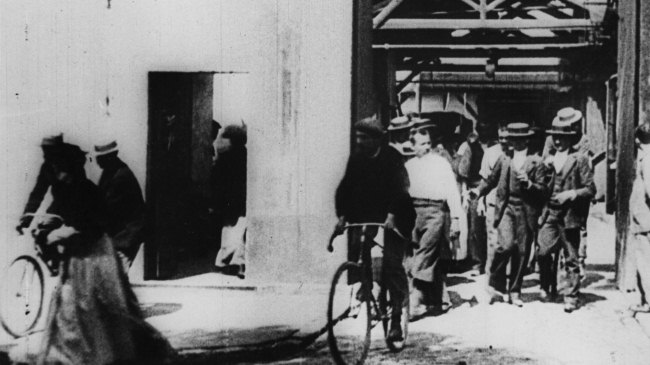
Workers Leaving the Lumire Factory (1895)
The Film: The first publically screened cinematograph from Auguste and Louis Lumière did exactly what it said on the tin, showing the end of a shift at their factory on the outskirts of Lyon.
The Influence: Incalculable. Audiences boggled at the notion of moving pictures, awestruck and a little afraid, and kickstarted an industry. Meanwhile, the Lumières' filming of reality makes this the first screen documentary.
If It Didn't Exist: We'd still be going to shadow plays and art galleries for our picture stories.
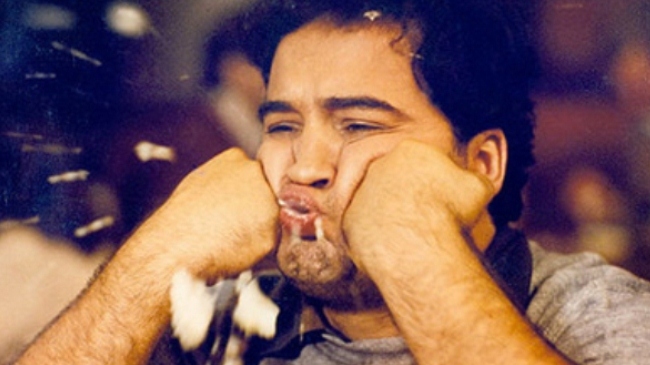
National Lampoon's Animal House (1978)
The Film: John Landis' frat boy comedy introduced a new generation of stars, notably toga-lovin' John Belushi, en route to gleeful anarchy.
The Influence: This wasn't your parents' comedy. The kids had taken over the asylum from their base at Saturday Night Live ; the biggest comedy stars since (Murray, Myers, Ferrell, Fey) have followed.
If It Didn't Exist: Comedy would be a much more tasteful and timid affair.
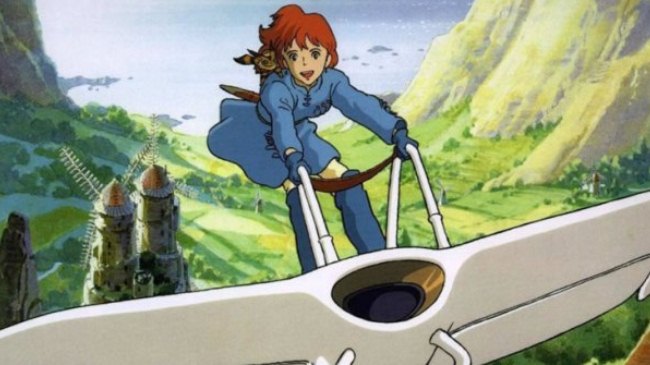
Nausica Of The Valley Of The Wind (1984)
The Film: Hayao Miyazaki's animated fantasy eco-fable was such a hit (in Japan, if not the West) it led directly to the formation of Studio Ghibli.
The Influence: Ghibli spearheaded a Golden Age of Japanese animation that also saw the emergence of non-Ghibli auteurs Satoshi Kon and Katsuhiro Otomo. Eventually, with Miyazaki's Oscar winning Spirited Away , the world caught on, too.
If It Didn't Exist: There would be no alternative to Disney/Pixar dominance. Worse, no Totoro.
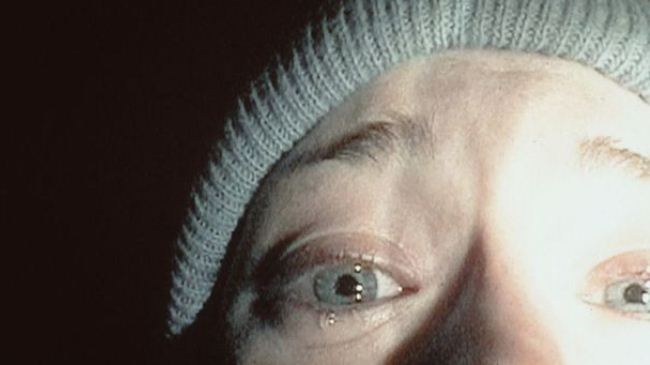
The Blair Witch Project (1999)
The Film: Daniel Myrick and Eduardo Sánchez's no-budget horror brought Dogme-style invention into American horror by throwing its cast into the woods to document their own demise to shake off the genre's post- Scream dead end.
The Influence: This wasn't the first 'found footage' movie but none previously had broken the record for budget-to-box office ratio. Meanwhile, its viral marketing campaign gave the studios a great idea: hey, why don't we use this new-fangled Interweb to sell our movies
If It Didn't Exist: We'd have to wait until our next visit to the cinema to learn about forthcoming attractions.
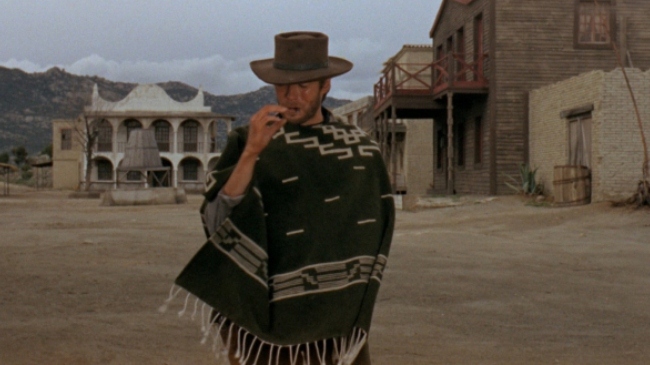
A Fistful Of Dollars (1964)
The Film: Sergio Leone, bored of the Italian film industry's reliance on swords 'n' sandals epics, reckoned he could make a Western by ripping off the plot of Kurosawa's Yojimbo and casting that guy off Rawhide as his anti-hero.
The Influence: The stylish, sadistic 'Spaghetti' Western became a viable genre in its own right, and revolutionised Hollywood's own output as directors from Peckinpah to Leone's star, Clint Eastwood, ramped up the politics and violence. When you think about it, Leone's flippant tone, with its laconic one-liners and unstoppable hero, foreshadowed the modern cinema action hero.
If It Didn't Exist: Nobody would have thought to heighten a gunfight with close-ups of nervous eyes or whistling on the soundtrack.
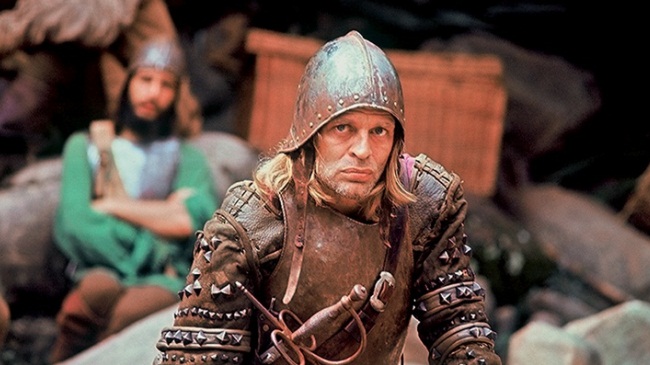
Aguirre, Wrath Of God (1972)
The Film: Werner Herzog hears a story about a foolhardy expedition down the Amazon by 16th Century conquistadores and thinks, lets restate it as realistically as possible. For added crazy, he casts career nutjob Klaus Kinski.
The Influence: Not only did Herzog spearhead the German New Wave alongside Rainer Werner Fassbinder and Wim Wenders, but his crusading zeal was noticed by directors further afield (notably Coppola with Apocalypse Now ). These days CGI might make things easy, but this remains the one to beat for filmmakers trying to keep it real.
If It Didn't Exist: Everything would be faked with blue-screen.
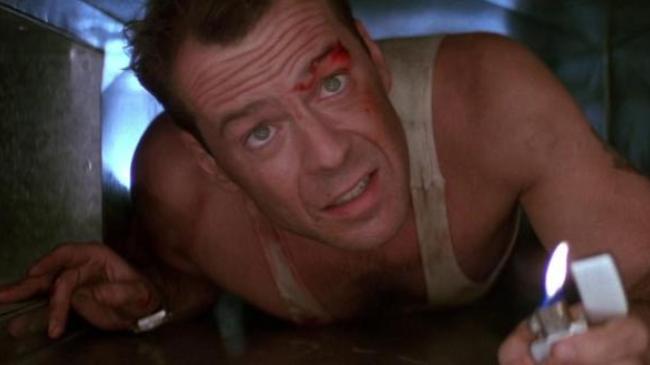
Die Hard (1988)
The Film: John McTiernan's Bruce Willis actioner was unheralded pre-release but swept away the dour excesses of the Stallone/Schwarzenegger muscleman years in favour of something leaner and lighter.
The Influence: Its 'one man army' premise was so strong that action cinema still thinks along the lines of " Die Hard in a xxx." Except, ironically, when it comes to making official Die Hard sequels.
If It Didn't Exist: We'd be watching variants of " Rambo in a xxxx."
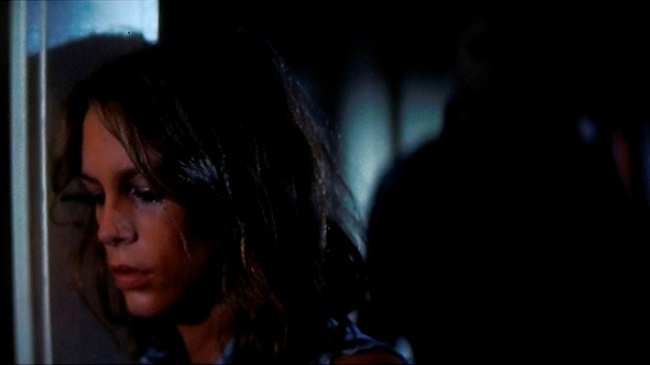
Halloween (1978)
The Film: Emerging cult icon John Carpenter confirmed the rise of style and spectacle in American movies by stripping back horror to basics: a masked killer lurking in the shadows, a small cast of cute teens ready to be slaughtered, a prowling Steadicam forcing us to look.
The Influence: Not once but thrice - firstly, as the launch pad for the slasher genre; secondly, as the model for Scream 's parodic deconstruction of the form; and thirdly, as a symbol of modern horror's remake mania thanks to Rob Zombie's version.
If It Didn't Exist: Horror would still be set in creepy castles rather than in our own homes.
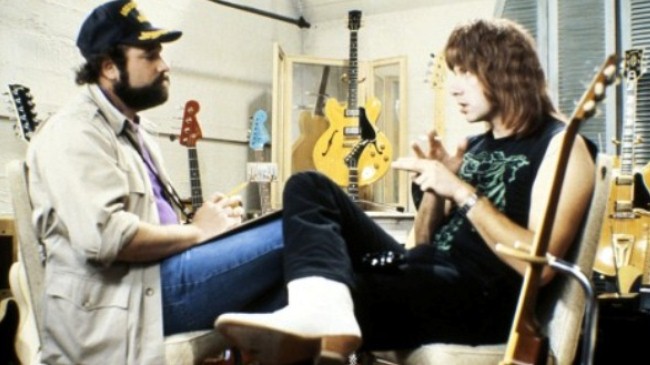
This Is Spinal Tap (1984)
The Film: Rob Reiner's account of a heavy metal band's fall-and-slight-rise smuggled its deadpan surrealism into cinemas by purporting to be 100% real, despite its apparently British stars all being American.
The Influence: The painstakingly detailed mockumentary format shifted the rules for screen comedy away from star vehicles to understated, realistic acting performances, and away from glossy production values towards faux-verite handheld.
If It Didn't Exist: Rodney Dangerfield would have been a bigger star.
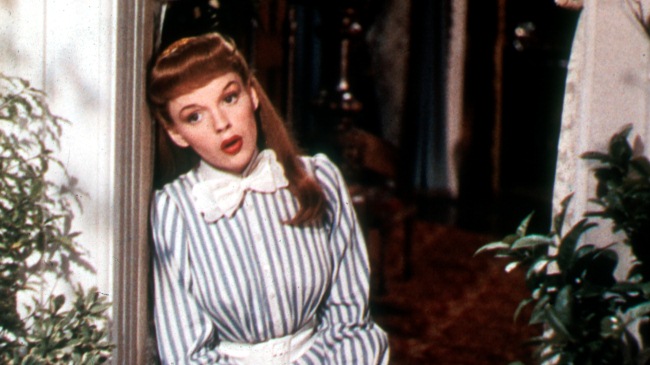
Meet Me In St Louis (1944)
The Film: Vincente Minnelli's musical about a year in the life of an ordinary American family brought new maturity to the genre: no Busby Berkeley-style stopping the story for a dance routine; instead thematically resonant songs woven into the narrative.
The Influence: Minnelli and his fellow directors at the Freed Unit at MGM kickstarted the greatest run of musicals in movie history, reaching a creative peak with Singin' In The Rain and giving Minnelli two Best Pictures ( An American In Paris , Gigi ) in the 1950s. More directly, Minnelli married star Judy Garland to bring Liza Minnelli into the world.
If It Didn't Exist: Singing and dancing wouldn't be taken seriously.
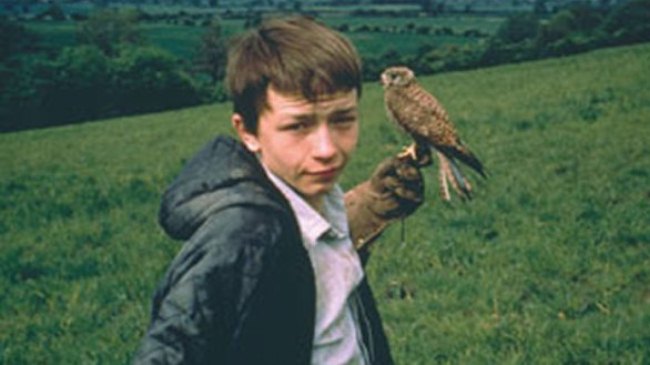
Kes (1969)
The Film: After revolutionising TV drama for the BBC, Ken Loach's film was simplicity itself - just a boy and his pet kestrel. But the director's realism captured wider resonances of place and time.
The Influence: British social realism has never looked back; our best directors today (Meadows, Arnold) are forged in Loach's image and a BBC apprenticeship is the best start for a cinema career (just ask Danny Boyle or Tom Hooper). But it isn't just at home; Krzysztof Kielowski, for one, grew up a Loach fan.
If It Didn't Exist: There would be no grit to counterbalance cinema's tendency to smoothness.
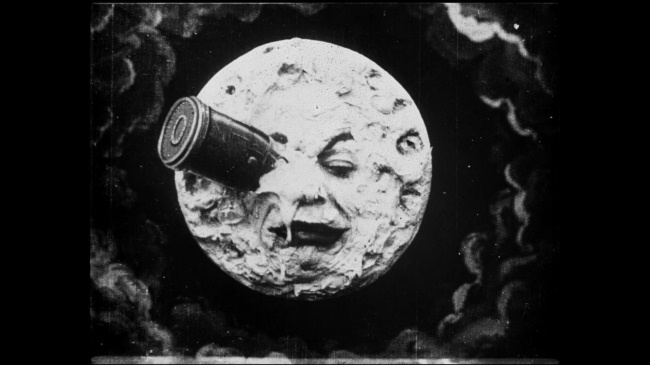
A Trip To The Moon (1903)
The Film: The most seen of hundreds of fantastical shorts made by George Méliès, which tells the iconic story of a lunar rocket trip that accidentally takes out the eye of the man in the moon.
The Influence: Méliès was a stage magician, and he used his fondness for sleight of hand to invent cinema's first special effects using double exposures, elliptical cuts and elaborate sets.
If It Didn't Exist: Cinema would still be primarily a documentary medium; Méliès freed the imagination of dreamers and visionaries.
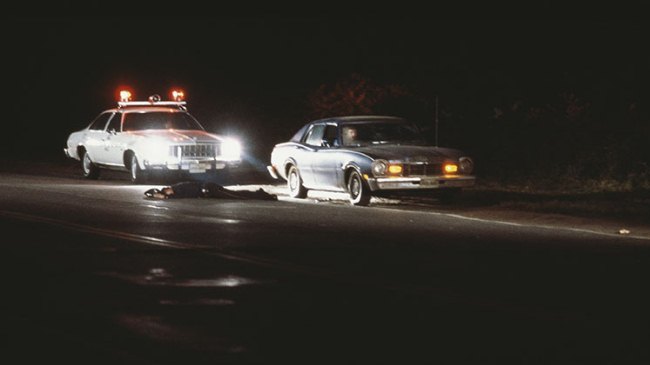
The Thin Blue Line (1988)
The Film: Errol Morris' documentary took on a single example of Death Row injustice and - simply by laying out the facts - created a wider portrait of flaws in the American legal system.
The Influence: Most obviously, the conviction of Randall Dale Adams was overthrown. Yet Morris exerted an even greater grip on the future of documentaries. His mix of confessional talking heads and reconstructions are now a genre standard, while the digital renaissance in crusading docs owes much to Morris' tenacity and diligence.
If It Didn't Exist: Fiction would still be stranger than truth.
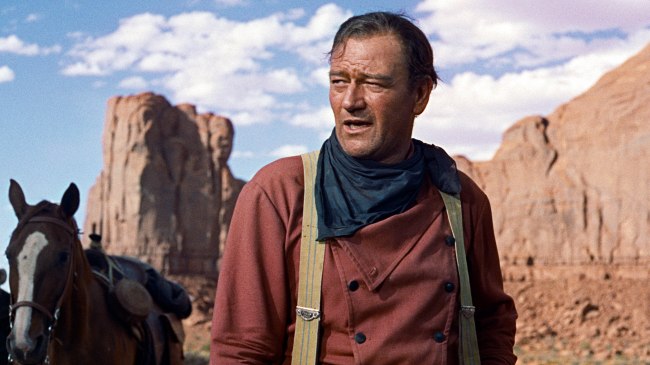
The Searchers (1956)
The Film: John Ford's Western was deemed a routine adventure on release; only later did critics and filmmakers notice the depth of its portrayal of John Wayne's racist anti-hero Ethan Edwards.
The Influence: The Searchers was a key text in the formulation of auteur theory, highlighting how Hollywood's best directors added personal signatures to genre films. And its complexity was a major touchstone for the Movie Brats of the 1970s: both Taxi Driver and Star Wars borrow from it.
If It Didn't Exist: Westerns would still involve thoughtlessly killing all of the Injuns.
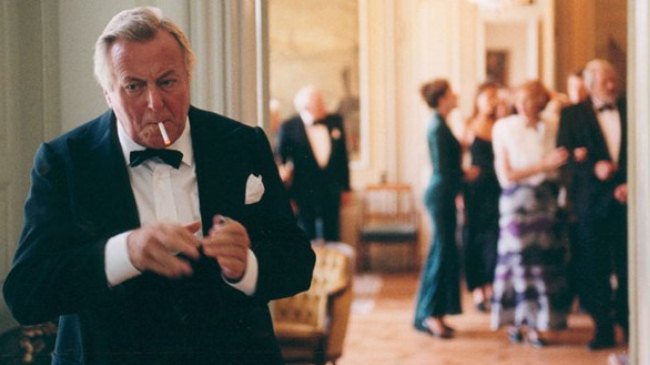
Festen (1998)
The Film: Think films are too polished? That was the starting point for Thomas Vinterberg and Lars Von Trier's decision to strip things back in their Dogme 95 manifesto, introduced in Vinterberg's debut about a family crisis.
The Influence: Dogme itself (natural lighting, no auteur credits) proved a fad but Antony Dod Mantle's handheld, lo-fi camerawork proved that it was possible to make a successful on a camcorder to inspire a new wave of DIY digital directors. Without this, mumblecore wouldn't be possible.
If It Didn't Exist: Everyone would still be shooting on film.
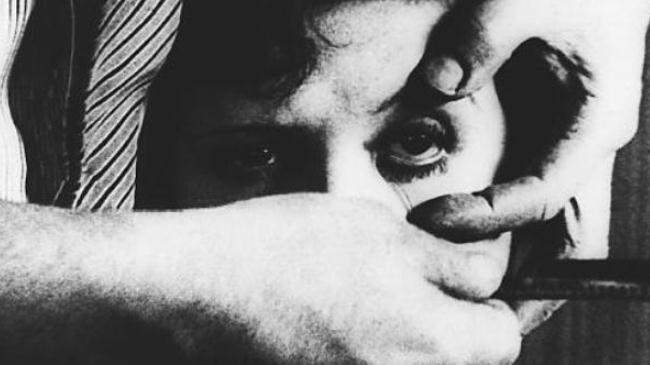
Un Chien Andalou (1928)
The Film: Dismayed at the normality of most movies, Luis Buñuel and Salvador Dali collaborated on an eyeball-slicing surrealist short that would highlight the dreamlike possibilities that cinema afforded.
The Influence: Practically the Bible when it comes to avant-garde cinema (everyone from Kenneth Anger to David Lynch) its weirdness has also seeped into unexpected corners of pop culture: the Pixies song Debaser explicitly references the film.
If It Didn't Exist: Everything you see in a film would make sense, and you wouldn't have nightmares afterwards.
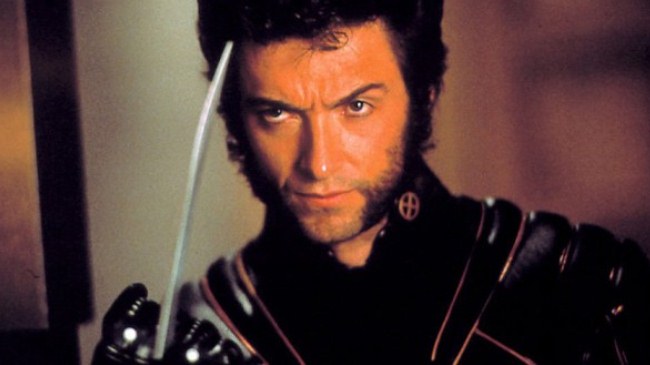
X-Men (2000)
The Film: Bryan Singer's first superhero movie ushered in a new century during which mutants and other masked oddities would become the default storytelling option for top-end Hollywood filmmaking.
The Influence: No summer is complete without several superheroes, with X-Men creators Marvel at the forefront of any activity. And the soon to be seven-film-strong X franchise, complete with standalone spin-offs and new cast prequels, provides a roadmap for longevity.
If It Didn't Exist: We'd still have heroes. But we doubt many would be super.
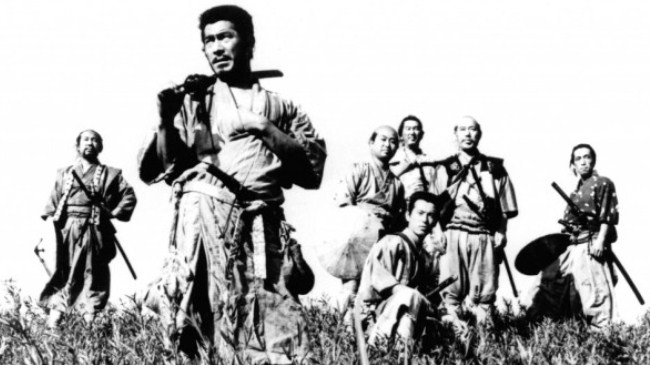
Seven Samurai (1954)
The Film: Akira Kurosawa's 1950 prize-winner Rashomon is credited with popularising Japanese cinema amongst Western audiences, but his epic adventure about the defence of a village from bandits has the more enduring legacy.
The Influence: Kurosawa confessed he was translating Hollywood Westerns into a samurai context; the favour was repaid as countless U.S. films starting with The Magnificent Seven copied Kurosawa's men-on-a-mission template.
If It Didn't Exist: Directors would have found another Kurosawa movie to rip off: cf The Hidden Fortress / Star Wars or Yojimbo / A Fistful Of Dollars .
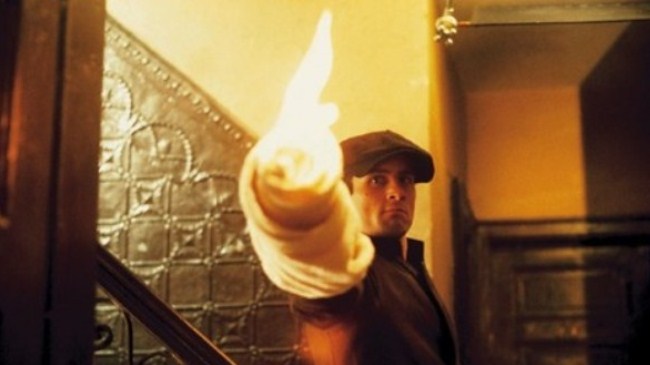
The Godfather Part 2 (1974)
The Film: Francis Ford Coppola's first hang-out with the Corleone clan is a classic, sure. But it's the sequel, in which Coppola pushed the mythic scale and political subtexts by following the family's story forwards AND backwards, that confirmed it as that rarity - a franchise as critically respected as it was commercially successful.
The Influence: This is the benchmark for all future sequels, proving that there is more to some movie characters than a single film can contain. Luke Skywalker, Ellen Ripley and Jesse & Celine have benefitted, for starters.
If It Didn't Exist: Follow-ups would be as artistically bankrupt as they are financially successful.
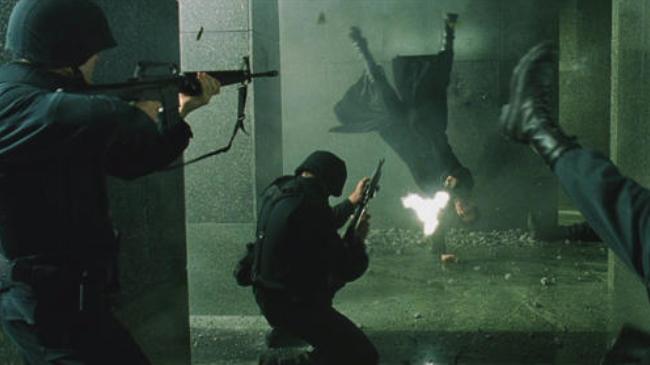
The Matrix (1999)
The Film: The Wachowski brothers combined cyberpunk and manga traditions to create a live-action anime, using techniques both traditional (wirework) and new (the 360 degree revolving camera of 'bullet time').
The Influence: No action movie of the early Noughties was complete without Matrix -style moves (and it's still a source of parody, seen most recently in Madagascar 3 ). Meanwhile, the Wachowskis' fondness for complicated mythology continues in the head scratching concepts of Inception .
If It Didn't Exist: Shoot 'em ups would still be grounded, straightforward affairs.
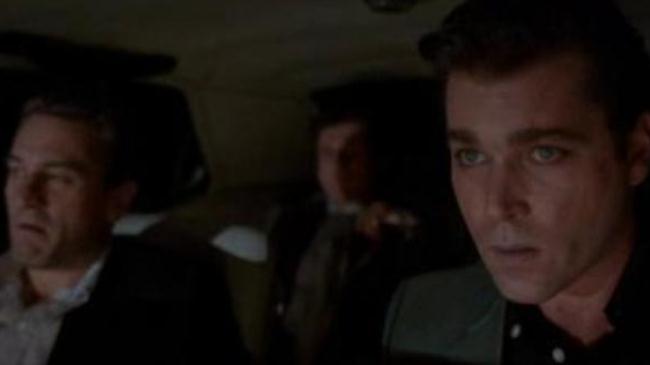
Goodfellas (1990)
The Film: The true story of Mob footsoldier was the tale Martin Scorsese had been waiting his life to make... and a lifetime's love of movies gave him the tools to do it justice.
The Influence: A staggering compendium of technique (voiceover, freeze frames, Steadicam) was seized upon by wannabes as a one-stop film school, while Scorsese's refusal to pass moral judgement defined the postmodern 1990s.
If It Didn't Exist: Classical 'invisible' film style would still be the norm, and directors wouldn't be obsessed with drawing attention to themselves.
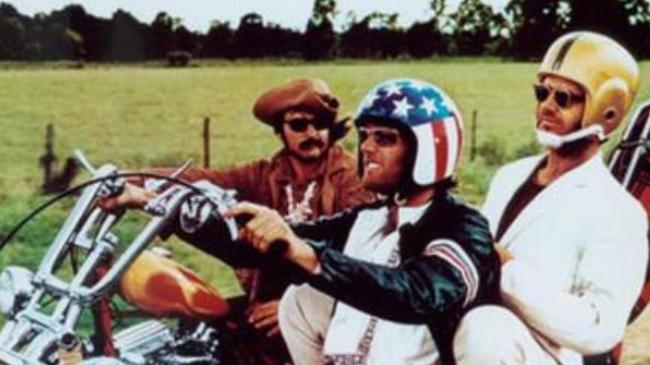
Easy Rider (1969)
The Film: In which mainstream drop-outs Dennis Hopper and Peter Fonda hit the road, take drugs, make a star of Jack Nicholson and give American cinema a visual equivalent to rock music.
The Influence: Hollywood realised there was a new generation with its own tastes to be catered for. Cue the rise of the road movie and the emergence of the jukebox soundtrack.
If It Didn't Exist: Movies would be made by squares, for squares, man.
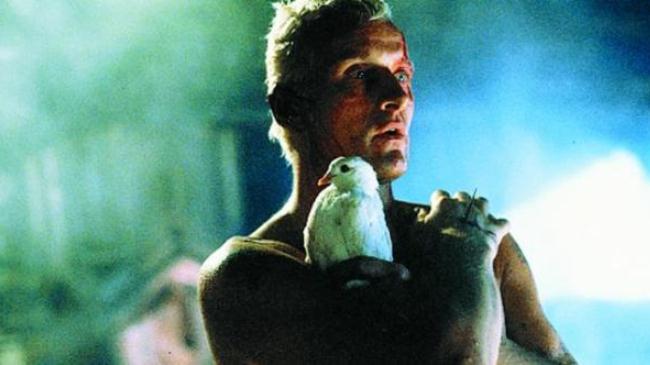
Blade Runner (1982)
The Film: Making Alien look unambitious, Ridley Scott's follow-up brought postmodern design and the barmy philosophy of Philip K. Dick into the mainstream. The mainstream wasn't listening, but a generation of directors heard the call.
The Influence: Replacing Metropolis as the go-to film for visions of the future, Scott's dense production design provided the template for adding details only discernible after endless home viewings. Oh, and several re-edits later, it's the film that granted artistic credibility to the Director's Cut.
If It Didn't Exist: Filmmakers would still just have the one shot at getting their ideas across to an audience.
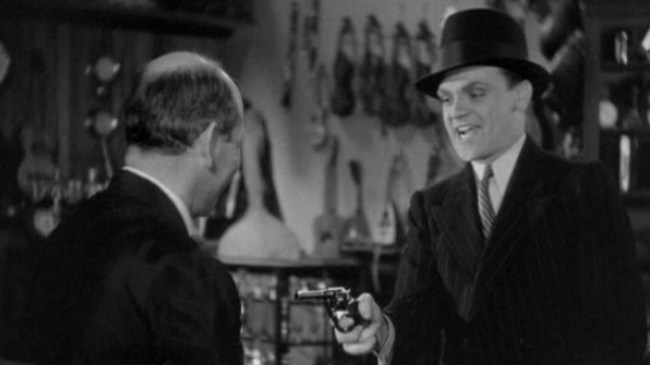
The Public Enemy (1931)
The Film: Although Little Caesar was the first Warner Brothers gangster movie out of the gate, William Wellman's short sharp shock laid the genre's groundwork on the rat-a-tat menace of James Cagney's hoodlum.
The Influence: With its visual violence (a grapefruit in the face) embellished by sound (all those tommy guns), the crackling energy enthralled audiences but scandalised authorities, setting a dialogue between crime and censorship that continues to this day.
If It Didn't Exist: Crime wouldn't pay.
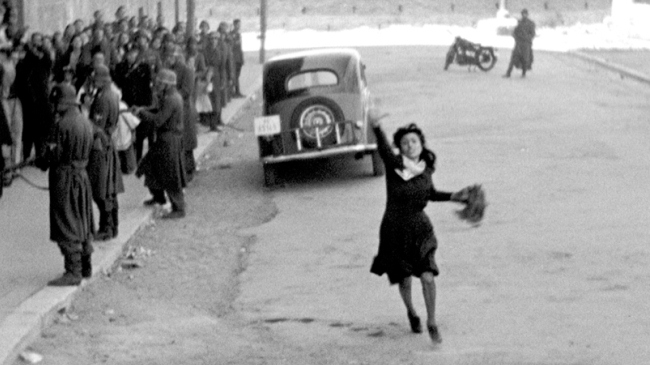
Rome Open City (1945)
The Film: World War Two was barely over when Roberto Rossellini restaged the Nazi occupation in the bombed-out ruins of Rome, mixing fiction with a palpable sense of documentary realism.
The Influence: Italian neo-realism proved to be the first great postwar movement in cinema, positioning the country as a new force in filmmaking and encouraging Hollywood to adopt a more stripped-back style in the films of Elia Kazan and others. Meanwhile, Rossellini's reportage style became the default setting for political cinema.
If It Didn't Exist: Cinema would come in one shade - gloss.
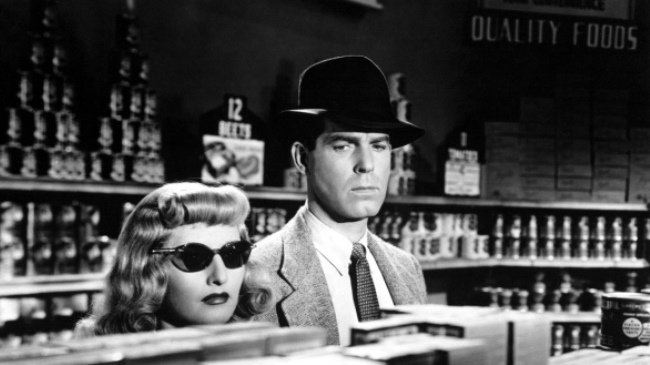
Double Indemnity (1944)
The Film: Film noir was yet to be named but Billy Wilder's lurid tale of sex, murder and insurance - adapted from James M. Cain's novel with the help of Raymond Chandler - defined a certain type of hard-boiled thriller full of ordinary Joes lured to their doom by sultry but dangerous femmes fatales.
The Influence: Indemnity was far from the first noir but it opened the floodgates, with many directed by European émigrés like Wilder who brought a pessimistic edge to the American dream. And when the neo-noir revival came, notably Body Heat , this was the template.
If It Didn't Exist: Evil would be clearly defined rather than hiding ambiguously in the shadows.
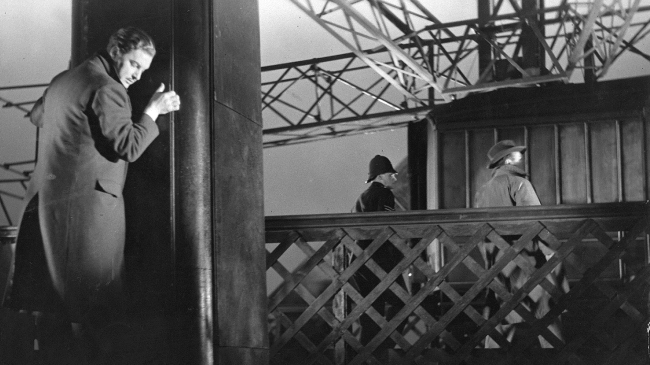
The 39 Steps (1935)
The Film: Rising British talent Alfred Hitchcock perfected his style with this rip-roaring adaptation of the John Buchan novel, inventing the romantic action thriller.
The Influence: Every time the plot is simply an excuse for more cool stuff to happen, it comes from this; Hitchcock himself stole from this for decades, and then everyone else followed suit. Oh, and this is the start of Hollywood's habit of nicking Britain's best directors.
If It Didn't Exist: Thrillers would still spend their final act having a detective spelling out every last plot point in detail rather than cutting to the chase.
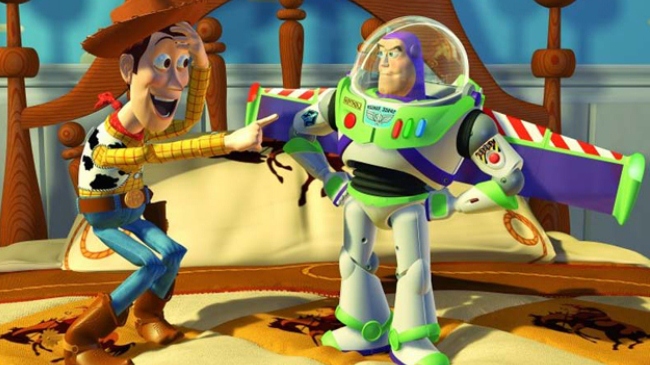
Toy Story (1995)
The Film: John Lasseter's Pixar signalled the biggest revolution in screen animation in decades by downing pen and paper for computers. But the real secret behind Woody and Buzz's success was good, old-fashioned attention to story, theme and character.
The Influence: Within years, CG had conquered Hollywood animation with Pixar becoming the sharpest, smartest studio in town. So pervasive was its influence that when Disney returned to 2D with The Princess And The Frog , the project was green-lit by none other than Lasseter, now in charge of Pixar's parent company, too.
If It Didn't Exist: Shares in pencil sharpener manufacturers would still be worth something.
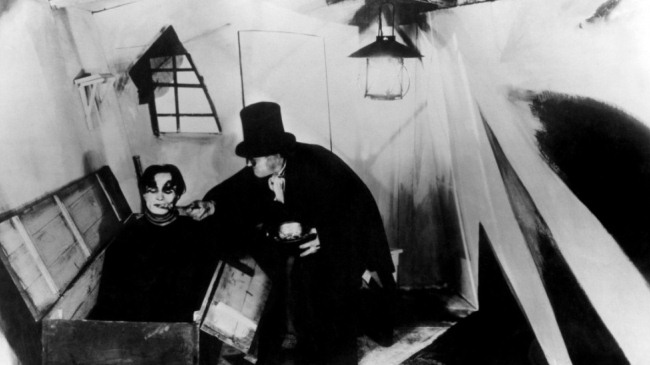
The Cabinet Of Dr Caligari (1919)
The Film: Robert Wiene wasn't the first filmmaker to attempt to creep out the audience, but the style of his tale of a mad hypnotist - all distorted sets and camera angles - found a cinematic language for horror.
The Influence: Wiene's compatriots Lang and Murnau expanded the possibilities of German expressionism and exported it to Hollywood, where it provided the visual basis for, amongst other things, Frankenstein , film noir and Tim Burton.
If It Didn't Exist: Directors would shoot everything square and straight-on, and we'd never know a dream sequence from normality.
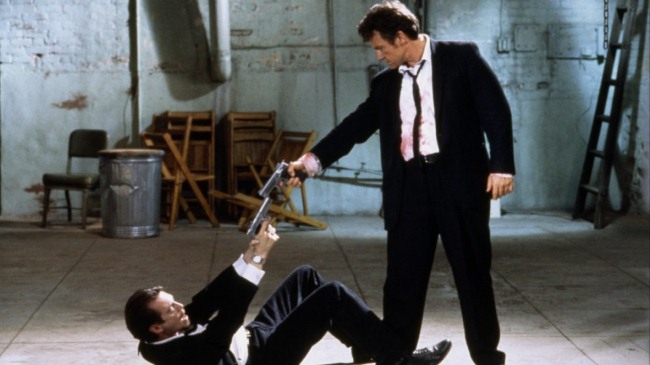
Reservoir Dogs (1992)
The Film: Yes, it was the Cannes-winning sex, lies and videotape which served notice that the Sundance Festival was where it was at, but it took Tarantino's debut to define modern indie as a cool mix of fractured chronology and small talk about movies and music.
The Influence: Soon, everybody was aping the Tarantino style. Wannabes have their characters nicknamed and sharp suits, while blockbusters paused to debate the merits of the Silver Surfer.
If It Didn't Exist: Movie characters would never watch other movies.
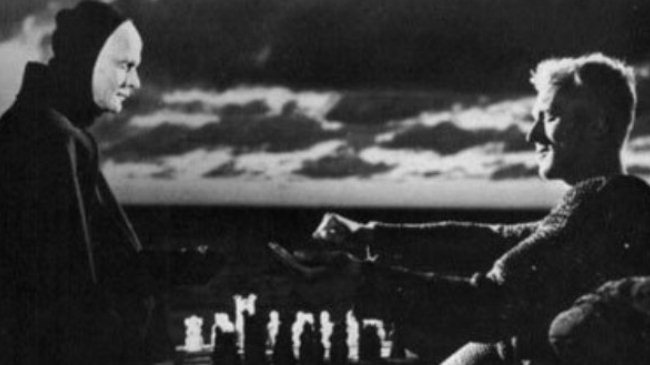
The Seventh Seal (1957)
The Film: Ingmar Bergman sealed his reputation as the bright hope of European art-house cinema with one of two films (alongside Wild Strawberries ) released in the space of a year - a medieval odyssey in which Max Von Sydow plays chess with death.
The Influence: Bergman became the flag-bearer for foreign language movies in the English speaking world, and those who followed (from Antonioni to Von Trier) followed in his footsteps: the gloomier, the better.
If It Didn't Exist: Movies would only ever show shiny happy people.
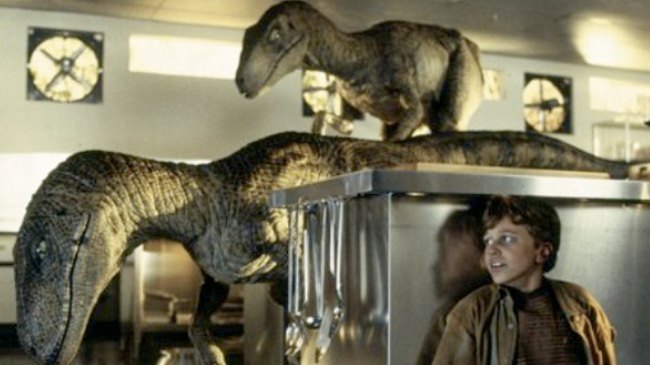
Jurassic Park (1993)
The Film: Steven Spielberg restored both his mojo and his status as Hollywood's premier maker of blockbusters with his kid-scaring tales of dinosaurs running amok in an ill-advised theme park.
The Influence: A seamless mix of animatronics and CGI enabled Spielberg to showcase the dinos in all their glory, ushering in a new age of blockbuster spectacle.
If It Didn't Exist: Creature FX would still be a guy in a rubber suit shouting "Roar."
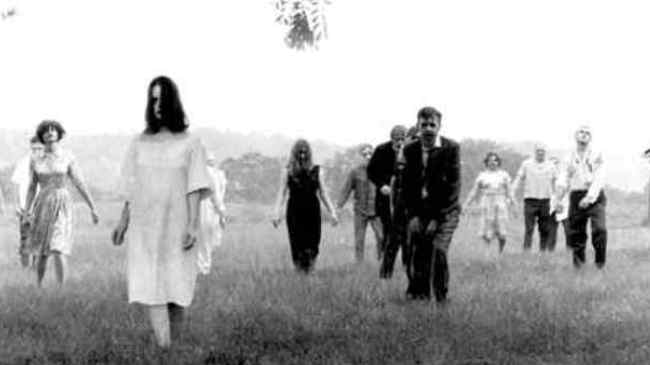
Night Of The Living Dead (1968)
The Film: Made with the help of friends and local butchers' offal, George A. Romero delivered a new paradigm in horror, as the undead rose from their graves to feast on human flesh as a gaggle of survivors holed up in a farmhouse.
The Influence: Raw, gory and full of political subtext, Romero ushered in a golden age of provocative horror that inspired Cronenberg, Craven, Hooper and others. The zombies, meanwhile, never rested again, becoming the first-timer's creature of choice and even getting their own blockbuster in 2013.
If It Didn't Exist: Horror would have no braaains.
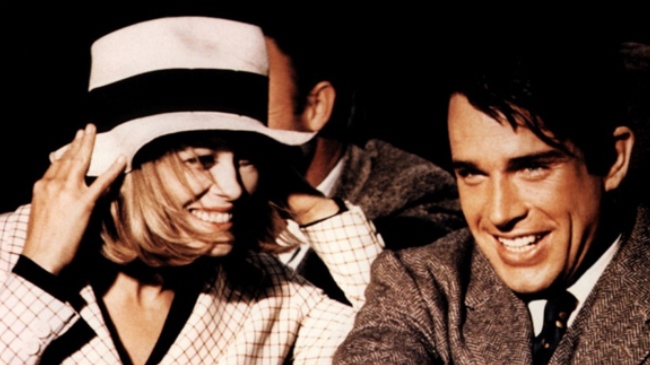
Bonnie And Clyde (1967)
The Film: Two first time screenwriters with a love of the French New Wave, an ambitious star/producer and a director who got the counter-cultural resonances of the titular 1930s bank robbers. Bye bye Golden Age Hollywood; there's a new generation in town.
The Influence: Refusing to stand still long enough to fit a fixed genre, Arthur Penn's film was free, wild and violent in ways that caused critics to change their initially sceptical opinions and drove like-minded directors to take over the asylum.
If It Didn't Exist: As Mark Harris' excellent book Scenes From A Revolution makes plain, without this (and fellow '67 graduate, er, The Graduate ) Hollywood's idea of a great movie would still be Doctor Doolittle .

Avatar (2009)
The Film: James Cameron's sci-fi eco-fable drew criticism for its old-fashioned storytelling but still became the highest grossing film of all time (beating his own Titanic ) for its technical innovations in 3D and mo-cap.
The Influence: For auteurs including Scorsese, Spielberg and Ridley Scott, Cameron pioneered a form of 3D offering real depth of field. For everyone else, there was the fake but profitable post-production conversion into 3D.
If It Didn't Exist: You wouldn't have to pay a premium every time you see a blockbuster.
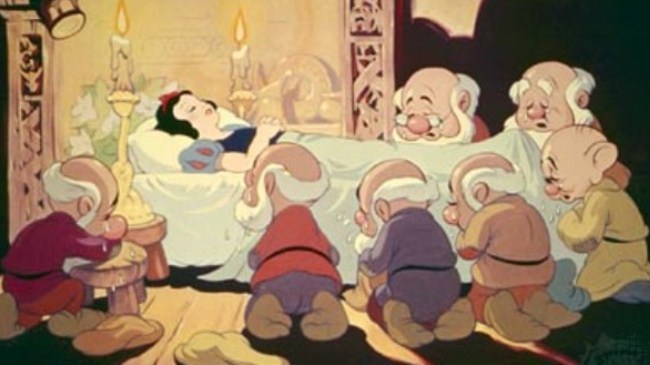
Snow White And The Seven Dwarfs (1937)
The Film: It was inevitable after a decade of success with shorts that Walt Disney would attempt a feature. In hindsight, it was probably also inevitable it would be a triumph, with nothing (iconic characters, hummable tunes) left to chance.
The Influence: The Disney formula was perfected on the first attempt; the studio (and, if we're honest, its rivals) are still so in thrall that deviations from the fairytale musical format tend to be the exception.
If It Didn't Exist: Children would have nothing to watch.
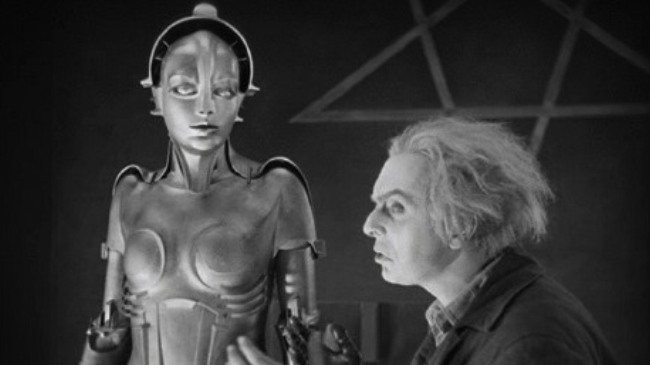
Metropolis (1926)
The Film: One of the most expensive movies then attempted, Fritz Lang's silent epic had the scale to match its instantly iconic imagery of futuristic cities and robot revolution.
The Influence: Lang's approach to world-building became the benchmark of science-fiction directors for decades. Arguably it still is; there's a definite Metropolis vibe to the divided dystopian society of Elysium .
If It Didn't Exist: Cardboard sets and cliffhanger peril would be as ambitious as sci-fi gets.
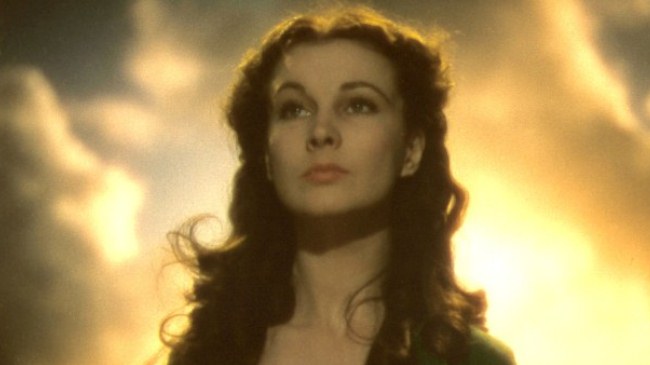
Gone With The Wind (1939)
The Film: Years in the making, producer David O. Selznick's expensive gamble hoovered up Hollywood's resources to bring Margaret Mitchell's Civil War romance to the screen.
The Influence: Adjusted for inflation, this is the highest grossing film ever made and the one to beat for ambitious filmmakers ever since. So every time a film spends too much, this is why.
If It Didn't Exist: Producers would be happy with small, simple tales of everyday folk... but where would the fun be in that?
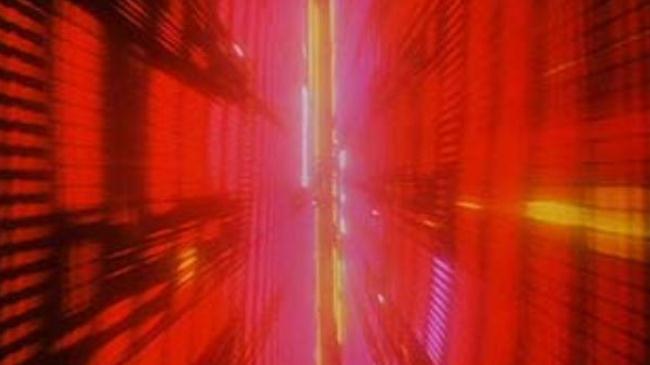
2001: A Space Odyssey (1968)
The Film: Stanley Kubrick's collaboration with Arthur C. Clarke took science-fiction seriously - no more B-movie monstering, instead philosophical musings on the meaning of life and immaculately researched space flight.
The Influence: Kubrick kick-started a golden age of science fiction cinema buoyed by pioneering FX - the next decade brought Silent Running , Solaris , Star Wars and Close Encounters . For the director himself, it cemented his status as cinema's ultimate perfectionist: there would only be another five films in 31 years.
If It Didn't Exist: There would be virtually no science in science fiction.
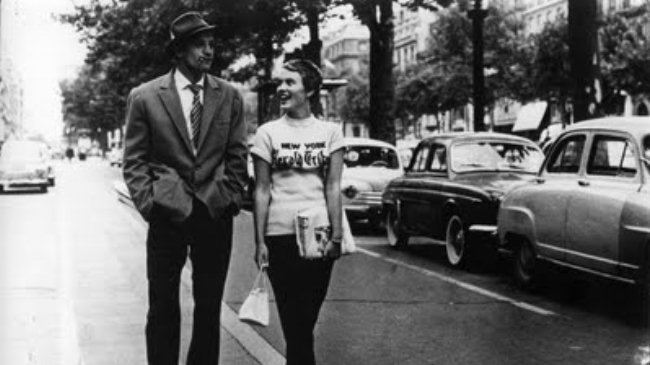
Breathless (1960)
The Film: Although Francois Truffaut and Claude Chabrol beat him out of the gate in the journey from critic to French New Wave filmmaker, it was Jean-Luc Godard's debut, about a cop killer on the run, which ripped up the rulebook to reinvent cinema according to the director's own rules.
The Influence: Fast, loose, flip and sexy, Godard's insolent cool (symbolised by the continuity-shredding jump cut) provided maverick filmmakers around the world with a visual grammar to match their radical ideas during the revolutionary 1960s.
If It Didn't Exist: Films would pretend to be real life instead of drawing attention to their own artifice.
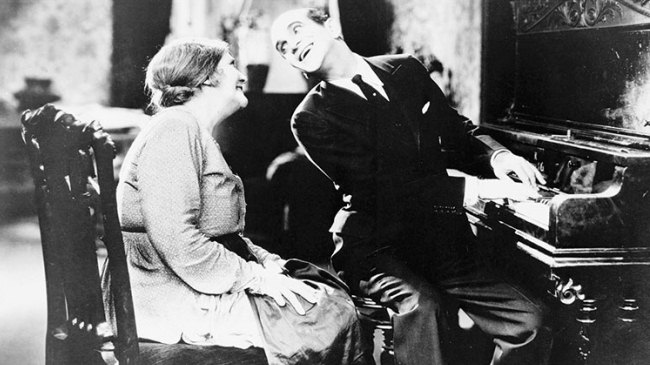
The Jazz Singer (1927)
The Film: Warner Brothers had a hunch that its Vitaphone system of synchronised sound might give it the edge over rival studios. Alan Crosland's musical melodrama about Al Jolson's singing rabbi's son proved it.
The Influence: Seismic - filmmakers around the world rushed to add sound to their pictures. Barring hold-out Charlie Chaplin, the talkies had taken over within a few years, and only the occasional revival (notably The Artist ) has restored the silence.
If It Didn't Exist: We'd still be looking and not listening.
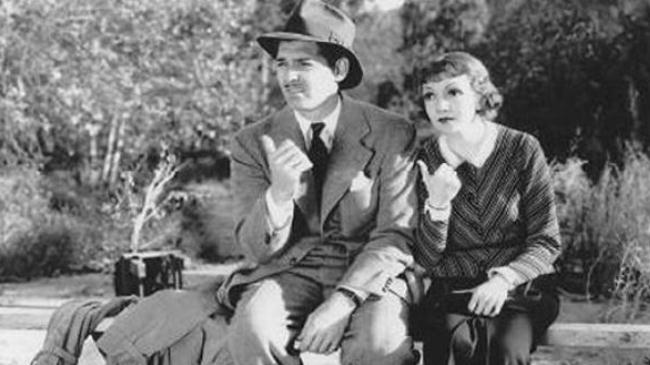
It Happened One Night (1934)
The Film: Claudette Colbert is an heiress on the run; Clark Gable is the hard-boiled reporter on her tail. They meet cute, sparks fly and opposites attract in Frank Capra's prototypical rom-com.
The Influence: An entire genre still runs along these well-travelled lines, largely because this film set a rarely-equalled benchmark for winning the "Big 5" at the Oscars: film, director, screenplay, actor, actress.
If It Didn't Exist: Screen comedy would be constant custard pies in the face.
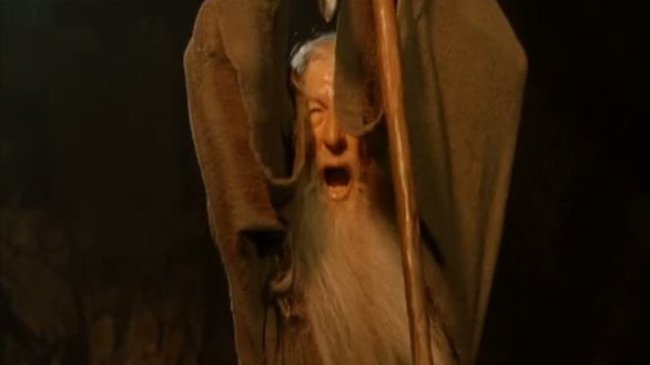
The Lord Of The Rings (2001-3)
The Film: Three for the price of one, as Peter Jackson elects to shoot Tolkien's entire fantasy trilogy in one go and carve it out in annual instalments.
The Influence: Franchises are no longer left to chance. Authors with established fanbases are optioned, release schedules are mapped out years in advance and if a story can be split into sections, all the better. Jackson also made fantasy hip, winning over the Academy and making possible Game Of Thrones .
If It Didn't Exist: Films would have a beginning, a middle and an end, rather than 'to be continued...'
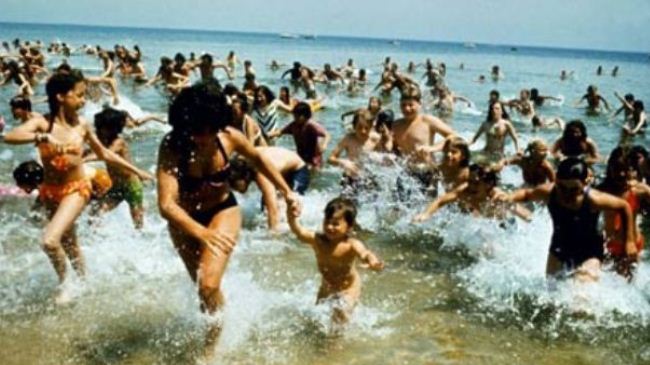
Jaws (1976)
The Film: Few in the industry expected much of tyro director Steven Spielberg's killer shark movie, especially after a troubled production out at sea. And then...
The Influence: The decision to open wide during Summer paid off, as Jaws exploded box office orthodoxy en route to a new business model. And Spielberg's innate sense of tension and adventure provided the tools to repeat the trick.
If It Didn't Exist: John Williams wouldn't have provided the soundtrack to our lives.
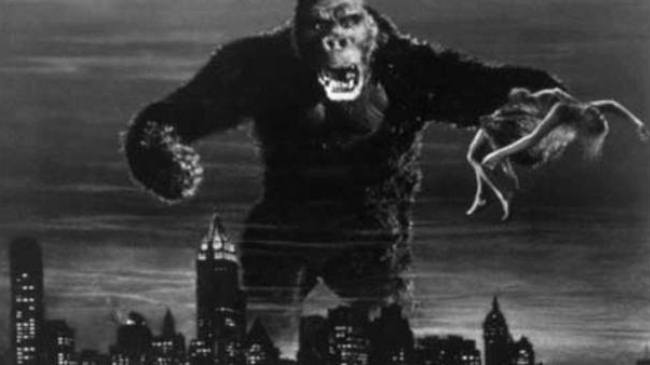
King Kong (1933)
The Film: It started as a semi-autobiographical adventure about sailing the world looking for exotic creatures to film, but Merian C. Cooper & Ernest B. Schoedsack's iconic monster movie quickly realised it would have to invent the main attraction.
The Influence: Willis O'Brien's titular creation, a landmark in stop-motion, proved that special effects could have personality and soul. Everyone from Ray Harryhausen to Weta has taken notice.
If It Didn't Exist: Fantasy and reality would remain in their own separate boxes, and we'd never experience the rush of seeing a creature run amok in our world.
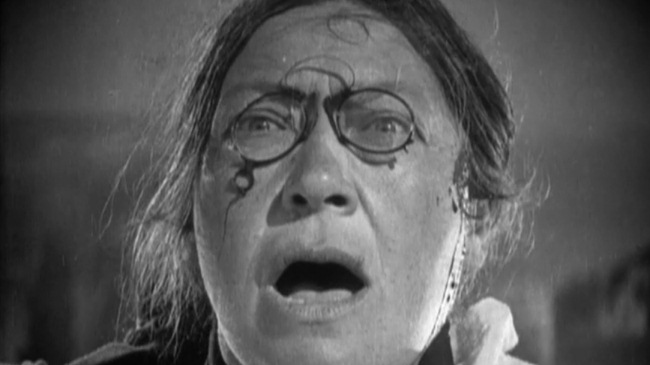
Battleship Potemkin (1925)
The Film: Sergei Eisenstein's second film perfected techniques of dialectic montage influenced by Soviet ideology to create this rousing propaganda pic in celebration of a famous mutiny.
The Influence: Editing wasn't just about getting from A to B for the Russians, but a means of creating ideas through association. Generations of art-house directors have borrowed those ideas, although Hollywood action helmers also found inspiration from Eisenstein's dynamic set-pieces.
If It Didn't Exist: Characters would have to tell us what they were thinking, instead of clever editing allowing the audience to work it out for ourselves.
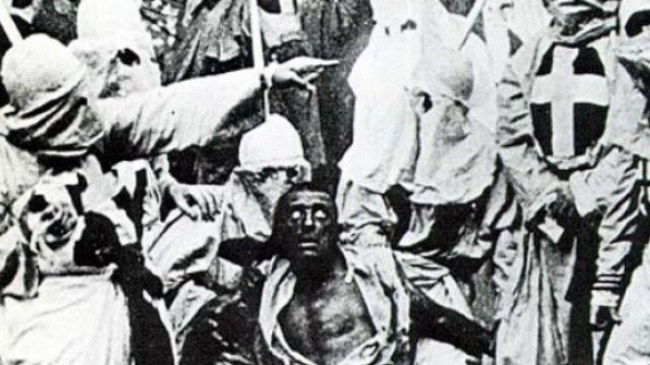
The Birth Of A Nation (1915)
The Film: Already a pioneer in continuity editing in his single-reel shorts, D. W. Griffith turned his attention to long-form narrative with his three-hour Civil War epic.
The Influence: Griffith defined Hollywood ambition to the present day by offering full-blooded action and romance on a vast scale. The catch? His film is hideously racist, setting the standard for a century of cinematic controversy as well.
If It Didn't Exist: We'd be more than happy with bite-sized chunks of story... although if you've ever been on YouTube, you'll know what goes around, comes around.
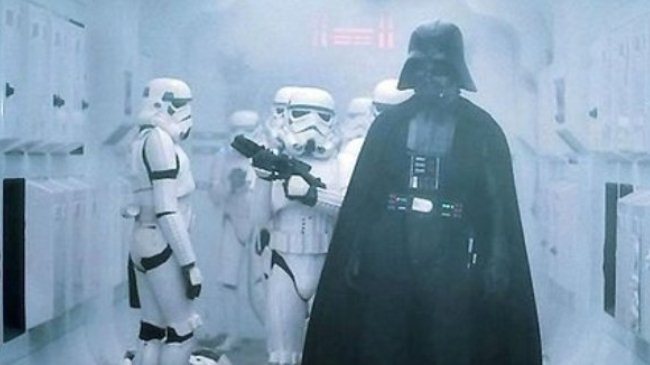
Star Wars (1977)
The Film: Take samurai adventure The Hidden Fortress , add a dash of Western, pilfer the action sequences from WWII dogfight movies and set in space. The rest you know.
The Influence: The formula (old-school cliffhanger thrills augmented with modern FX) hasn't really changed since the Seventies. How little it's changed we'll find out in 2015.
If It Didn't Exist: Nobody would know what a Jedi was, which would make the UK census results very different.
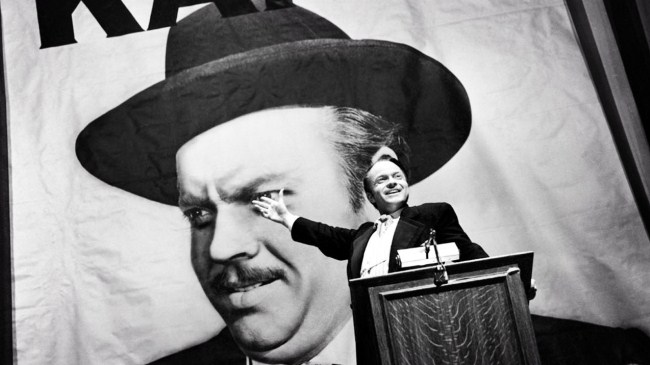
Citizen Kane (1941)
The Film: Wunderkind Orson Welles was given the keys to the kingdom by RKO, and used his status as star, director, producer and co-writer to turn his drama about a newspaper tycoon into an exploration of what the medium could do.
The Influence: Many of Welles' innovations (not least, all those ceilings) became standard techniques, but his greater legacy lies in giving generations of directors the confidence to turn a film studio into their plaything.
If It Didn't Exist: Vertigo wouldn't have had to wait for 50 years to claim that 'best film ever' tag.
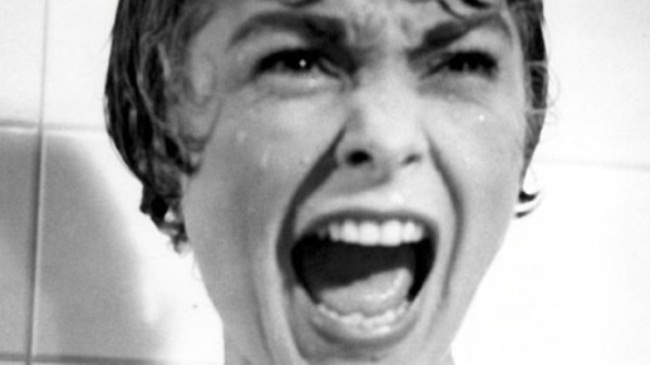
Psycho (1960)
The Film: Alfred Hitchcock's horror movie was such a risk he shot it cheaply using the crew from his TV show. The risk paid off; it changed everything. Today's filmmakers are still trying to beat it.
The Influence: The violence was one thing. But chiefly it was about timing; Hitchcock stuffed his film so full of shocks that cinemas were ordered not to admit anyone after the film had begun, wiping out decades' worth of casual cinema going and inventing event cinema.
If It Didn't Exist: Art and entertainment would still be treated separately by filmmakers and audiences.


